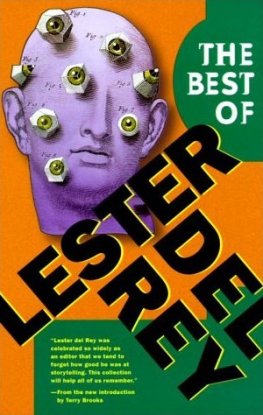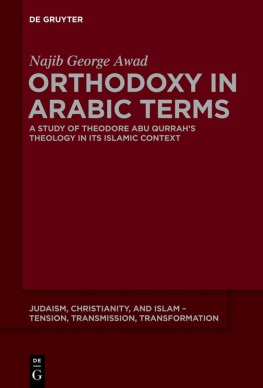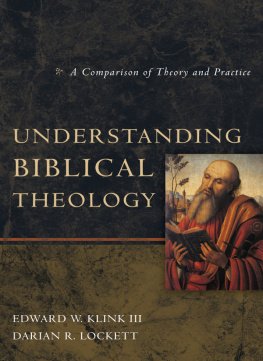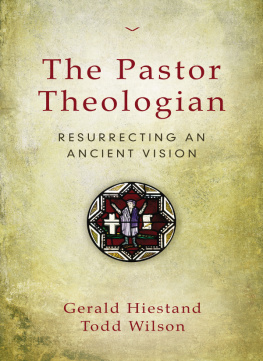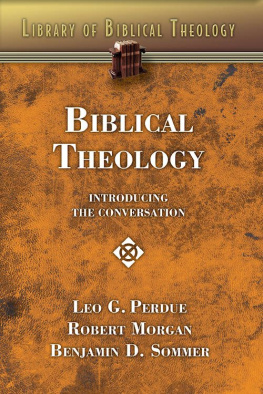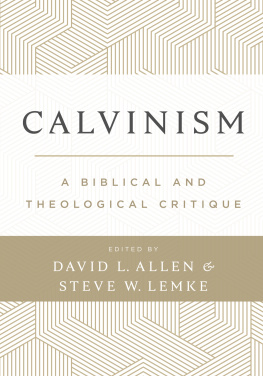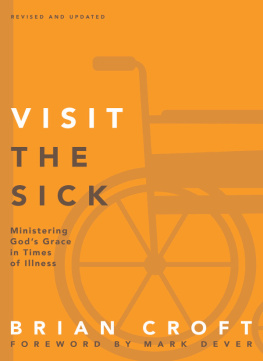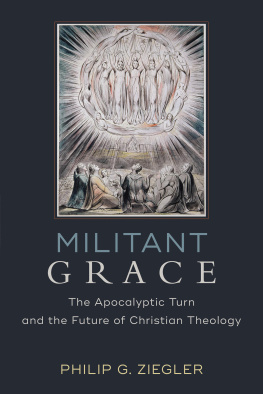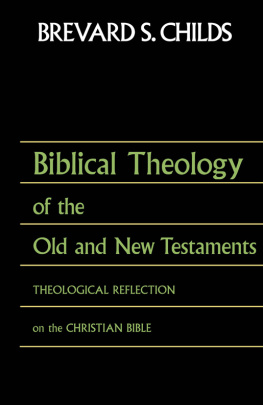The Angry Christian
THE ANGRY
CHRISTIAN
A Theology for Care
and Counseling
Andrew D. Lester

2003 Andrew D. Lester
All rights reserved. No part of this book may be reproduced or transmitted in any form or by any means, electronic or mechanical, including photocopying, recording, or by any information storage or retrieval system, without permission in writing from the publisher. For information, address Westminster John Knox Press, 100 Witherspoon Street, Louisville, Kentucky 40202-1396.
Scripture quotations, unless otherwise indicated, are from the New Revised Standard Version of the Bible, copyright 1989 by the Division of Christian Education of the National Council of the Churches of Christ in the U.S.A. and are used by permission.
Scripture quotations marked JB are from The Jerusalem Bible, Copyright 1966, 1967, 1968 by Darton, Longman & Todd, Ltd., and Doubleday & Co., Inc. Used by permission of the publishers.
Book design by Sharon Adams
Cover design by Night & Day Design
First edition
Published by Westminster John Knox Press
Louisville, Kentucky
This book is printed on acid-free paper that meets the American National Standards Institute Z39.48 standard. 
PRINTED IN THE UNITED STATES OF AMERICA
05 06 07 08 09 10 11 12 10 9 8 7 6 5 4 3
Library of Congress Cataloging-in-Publication Data
Lester, Andrew D.
The angry Christian : a theology for care and counseling / Andrew D. Lester.
p. cm.
Includes bibliographical references and indexes.
ISBN-13: 978-0-664-22519-3 (alk. paper)
ISBN-10: 0-664-22519-5 (alk. paper)
1. AngerReligious aspectsChristianity. 2. Pastoral counseling. 3. Pastoral care. I. Title.
BV4627.A5 L46 2003
253.5'2dc21
2002038092
Contents
Acknowledgments
A Henry Luce III Fellows in Theology grant, one program of The Henry Luce Foundation, Inc., made a significant contribution to this research project. I am appreciative of the personal investment of Henry Luce, III, chairman and CEO of the foundation; John W. Cook, president; and Michael F. Gilligan, program director for theology, who are instrumental in the success of this program.
This Luce Fellowship program is administered through The Association of Theological Schools in the United States and Canada. My thanks to Dan Aleshire, executive director, and to Matt Zyniewicz, at that time coordinator of Faculty Grant Programs, for their investment of time and energy in this program.
During my tenure at Brite Divinity School, Texas Christian University, the trustees, administration, and faculty have provided significant support for the facultys research and writing projects through a generous sabbatical program. Much of this project was finished during a sabbatical graciously granted by the administration and faculty for the academic year 20002001. The administration also provided a teaching assistant to assist with research during this leave.
My thanks to Westminster John Knox Press for granting permission to use material taken from my Coping with Your Anger: A Christian Guide, published in 1983, in which many of these basic ideas were first conceptualized. They also granted permission to use material from my Hope in Pastoral Care and Counseling, published in 1995, and from It Takes Two: The Joy of Intimate Marriage, published in 1998 (coauthored with my wife, Judy).
I am grateful for friends and colleagues who have willingly engaged and critiqued this material. Mahan Siler read an entire first draft and provided challenging responses and suggestions. Molly Marshall not only read and critiqued the entire manuscript but graciously and competently served as my presenter/responder at a meeting of Luce Scholars at Princeton. Bill Ratliff, professor at Earlham School of Religion in Richmond, Indiana, used an early draft of this material in a course and offered insightful critique. Dorothy Panelli graciously read several drafts, contributing immeasurably to my conceptualization of the issues and my writing style. I have been in dialogue over the years with many other colleagues, friends, workshop participants, students, and scores of authors who have written on this subject. I am grateful for all they have contributed to my thinking about these ideas.
Katherine Godby served as my research associate during this sabbatical. She worked untold numbers of hours (Im afraid to ask!), some underwritten by the Luce Foundation, and many more that she graciously gave. Her thorough approach saved me hundreds of hours in the library and on the computer. She intuitively tracked down the most important items and excavated from piles of material that which was germane to the project, and her suggestions about content and style were on target.
Other friends and colleagues were faithful in providing feedback from within their respective disciplines: David Balch, Brad Binau, Jim Duke, Larry Graham, Bill Hendricks, James Hyde, Charles Scalise, Frank Tupper, and Janice Yusk have all read selections of this material. Amy Cooper and Tammerie Spires gave many editorial suggestions to an early draft. Linda Ford and Andy Shelton served as my professors assistants during the sabbatical year, diligently finding sources and performing other time-saving tasks. Sherry Willis and Suzanne Stone, my administrative assistants during this period of time, were always willing to assist with administrative tasks and procedures.
Stephanie Egnotovich, who has been my editor at Westminster John Knox Press for a number of years, has guided this project from beginning to end (through numerous drafts!) with steadfast affirmation and support. I have greatly appreciated her insightful ideas about the style, structure, and content.
Judy, my wife and partner of forty-three years, never expected this one-year sabbatical project (my goal) to stretch over two years (the reality), but in her usual style she thoughtfully and consistently created the space for both work and play that was necessary to complete this project and stay sane. Furthermore, she read and critiqued this material from her perspective as a marriage and family therapist, offering ideas that resulted from her use of them in her therapeutic work. I am exceedingly grateful for all she gives to our relationship.
The dedication page in my first book on anger, Coping with Your Anger: A Christian Guide (Westminster/John Knox Press, 1983), read as follows:
To Wayne E. Oates
who first taught me how
to deal creatively with anger
Wayne was my professor, advisor, friend, pastor, and colleague. His gifts to me and my family are too numerous to recount, but one of them was his witness to effective ways of thinking theologically and ethically about anger. He helped me learn to identify and express more creatively this aspect of my being. He died in 1999 as I was preparing for this project. I remain grateful.
ANDREW D. LESTER
Summer, 2002
Introduction:
The Problem with Anger
I grew up afraid of anger and uncomfortable around conflict. I was carefully taught to be nice, and in my family and culture being nice clearly meant not expressing anger. Furthermore, I had experienced destructive anger, both my own and that of others, which convinced me anger was dangerous.
When I was in the seventh grade, a boy named Ira transferred into our school. For reasons I never understood, Ira picked on me constantly. His favorite annoyance was to jump on my back when I wasnt looking. I tried to ignore him, be nice, and avoid fighting, but to no avail. One day when Ira jumped on my back, I didnt control my anger. It exploded, and I threw him over my head onto the basketball court and began to beat his head on the asphalt. When the coach finally pulled me off, I was shaking with rage. His tears, cries of pain, and the blood on his head also left me frightened. Guilt piled on immediately. Having trespassed against my moral values about not being angry and not hurting people, I was embarrassed by my behavior. I vowed anew never to get angry.
Next page

